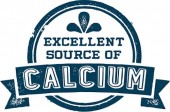Canceled Clients (4762)
Children categories

Train Your Body (438)
The show for fitness buffs or beginners. Expert guest from the American College of Sports Medicine (ACSM) discuss all areas of fitness, nutrition, athletics and sports medicine.
View items...
Staying Well (382)
RadioMD’s “talking” Health A-Z hosted by senior health correspondent, Melanie Cole, MS. Melanie interviews experts in the world of health, wellness, fitness and medicine.
View items...
Healthy Talk w/ Dr. Michael Smith (698)
Integrative physician, Michael A. Smith, MD is committed to providing listeners with the most current health information available.
View items...
Naturally Savvy (899)
Registered Holistic Nutritionist, Andrea Donsky and health expert Lisa Davis discuss their passion for living a natural, healthy lifestyle.
View items...
Eat Right Radio (48)
EatRight Radio, with experts from the Academy of Nutrition and Dietetics, discusses food and nutrition topics, healthy weight, allergies and health conditions, healthy aging, food safety and so much more. Give us 10-minutes and we'll give you the important information and expert advice from registered dietitian nutritionists to help you eat right, feel better, and live a healthier life. Hosted by Melanie Cole, MS.
View items...
Sharecare Radio (235)
Sharecare Radio, hosted by Sharecare’s own Dr. Darria Long Gillespie, SVP of Clinical Strategy at Sharecare, will appear live every Tuesday from 12 to 1 p.m. EST on RadioMD. Dr. Darria will break down the top health news of the week, pull in experts from around the country on a wide array of health topics and answer listeners’ live questions on all things health.
View items...
Wellness for Life (455)
On Wellness For Life Radio you will learn practical, easy-to implement tips to improve your life and start feeling better — the natural way.
View items...
The Wizard of Eyes (163)
Dr. Robert Abel Jr. talks about many of the important and unrecognized parts of our visual system which we so often take for granted. The show covers the usual common ocular disorders with an East/West approach to both prevention and therapy. The eye-brain connection is presented with information about memory retention, Alzheimer's, the myopia epidemic, and many more subjects. Dr. Abel discusses how the eye and vision are connected with remote parts of the body including your gut flora, musculoskeletal system, blood pressure, drugs and lifestyle. practical and simple health tips.
View items...
Code Delicious with Dr. Mike (135)
Code Delicious with Dr. Mike breaks all the rules. Unabashedly confronting the questions, concerns and conundrums that continually confuse both public and experts alike; Dr. Mike takes us on a tasty trip of inquiry.
View items...
CLEAN Food Network (98)
This show is a call to action for all the clean eating revolutionaries that care about their health and how and what they eat. Non-GMO, natural, organic . . . food the way nature intended. The clean food movement is huge and is growing exponentially. This companion program talks to experts in food preparation, healthcare, celebrities, and even those companies that care enough to provide the best, wholesome, organic foods and groceries.
View items...
Talk Healthy Today (213)
Looking to create your best self? Whether it’s good-for-you lifestyle hacks, smarter ways to supplement, or tasty tips to fuel optimal health, Talk Healthy Today brings you the latest research, tools, and common sense tips you need to get and stay healthy... starting today!
View items...
Be a Doer (17)
Be A Doer features master coach and TV personality John Abdo as he shares health and fitness tips aimed at getting you in shape – and keeping you there!
View items...The Power of Probiotics (3)
Probiotics is a major global industry. But like any industry, it had to have a beginning. Natasha Trenev is the daughter of an Eastern European family where the manufacturing of yogurt was a generational business. When Natasha emigrated to the US in the 1960’s, she brought with her 750 years of family experience with probiotics – and introduced the science (and the term itself) to her new country. Today, Natasha’s California-based Natren, Inc. is the recognized pioneer in probiotics and company founder Natasha Trenev has earned recognition as the Mother of Probiotics. Her more than 50 years of work in natural health is at the core of the unparalleled success of her company – and you will benefit from her depth of expertise in each and every episode of THE POWER OF PROBIOTICS.
Probiotics are live microrganisms that are commonly referred to as ‘friendly,’ ‘good’ or ‘healthy’ bacteria that function to help maintain the natural balance of organisms in the intestine. Throughout Natasha’s extensive work in the field of probiotics, she has always been amazed by how nature provides the very ‘good’ bacteria that can help overpower ‘bad’ bacteria to keep our digestive tracts functioning at peak performance. Properly cultivating friendly bacteria and ensuring their potency is at the core of the Natren Process. Natren is cited – by retailers, by the medical community and by consumers – as the best probiotic supplement available. Only Natren carefully chooses its probiotic cultures, formulates and manufactures its industry standard probiotics in its own plant and utilizes a specially-formulated oil matrix to protect probiotics bacteria to survive until they reach their destination in the upper small intestine. This is why only Natren is the most trusted probiotic supplement on the market. Truly, where other probiotic supplements promise – Natren Delivers.
To learn more about how probiotics can benefit your health, we are proud to introduce you to THE POWER OF PROBIOTICS with The Mother of Probiotics, Natasha Trenev.

Your Brain Health (24)
Noted Los Angeles-based neuroscientist and media personality Dr. Kristen Willeumier launches Your Brain Health with Dr. Kristen Willeumier, a podcast series that explores the latest news and information in the burgeoning science of brain health.
View items...Additional Info
- Segment Number 3
- Audio File healthy_talk/1507ht5c.mp3
- Organization Life Extension
- Guest Website Healthy Talk MD
- Length (mins) 10
- Waiver Received No
- Internal Notes NO GUEST
Additional Info
- Segment Number 2
- Audio File eat_right/1507nd1b.mp3
- Featured Speaker Alissa Rumsey, RD
- Organization Academy of Nutrition and Dietetics
-
Guest Bio
 Alissa Rumsey is a New York City-based Registered Dietitian, Personal Trainer and Media Spokesperson. After six years of working at New York’s number-one hospital, she founded Alissa Rumsey Nutrition and Wellness Consulting, where she offers personalized nutrition, fitness, public speaking and consulting services. She specializes in weight loss, sports nutrition, diabetes, cardiovascular disease, worksite wellness and preventative nutrition. Her knowledge and expertise is regularly featured in television, online and in print, including CNN, ABC, BBC, Fox News, CBS, Time Magazine, New York Daily News, New York Post, and New York 1.
Alissa Rumsey is a New York City-based Registered Dietitian, Personal Trainer and Media Spokesperson. After six years of working at New York’s number-one hospital, she founded Alissa Rumsey Nutrition and Wellness Consulting, where she offers personalized nutrition, fitness, public speaking and consulting services. She specializes in weight loss, sports nutrition, diabetes, cardiovascular disease, worksite wellness and preventative nutrition. Her knowledge and expertise is regularly featured in television, online and in print, including CNN, ABC, BBC, Fox News, CBS, Time Magazine, New York Daily News, New York Post, and New York 1.
A graduate of the University of Delaware with duel Bachelor degrees in Dietetics and Exercise Physiology, she then completed her dietetic internship with the University of Connecticut. Alissa is currently pursuing a Masters of Science degree in Health Communications from Boston University. -
Transcription
Melanie Cole (Host): You may be treating your sweetheart this February, but don’t forget: this is also American Heart Month. Give your own heart some extra love. Heart disease is the leading cause of death in this country. My guest today is Alissa Rumsey. She’s a New York City based registered dietitian, personal trainer, and media spokesperson. Welcome to the show, Alissa. Why don’t you start by telling us a little bit about Heart Disease Month and why it’s so important that we pay attention to our hearts at this time?
Alissa Rumsey (Guest): Sure. February is National Heart Month, and it’s a time for everyone to really understand the importance of heart disease and to know the risk factors for it, to know what can prevent heart disease, what can improve heart disease, and to know what to check in with their doctor for. Some of the risk factors for heart disease are things that we can’t really feel, such as high blood pressure or diabetes. There are many people that have untreated and unknown high blood pressure and diabetes because you can’t really feel that they are a really big risk factor for heart disease. So February is a time where we do a lot of outreach and a lot of education about what heart disease is and what the risk factors are and what you should do to try to prevent it.
Melanie: Tell us a little bit about some of the risk factors that we can control.
Alissa: Sure. There are certain things that we can’t, but then there are a lot that we can. Many of those revolve around diet, around getting to a healthy weight, being active, also certain lifestyle things as smoking. Quitting smoking can really improve your risk for heart disease, as well as, like I mentioned before, knowing if you have high blood pressure, and if you do, making sure you’re controlling that; knowing your risk for diabetes, and if you do have diabetes, keeping your blood sugar under control; then also making sure you’re getting your cholesterol levels checked and under control as well.
Melanie: Tell us a little bit about cholesterol and its role in heart disease. When people get their cholesterol taken, Alissa, they don’t understand the numbers that they see. Tell us a little bit about cholesterol and where we might find cholesterol so we can steer clear of it.
Alissa: Sure. The cholesterol numbers that you get from your doctor are going to be made up of four different values. You have your total cholesterol, which ideally we want to have less than 200. Then you have what is called LDL, which we consider “bad cholesterol,” and that should be under 160. Then HDL is good cholesterol, and we actually want that number high. We want it over 40 and ideally much higher than that. Then the last number is triglycerides, which we want below 150. What happens with cholesterol is when you have too much cholesterol and, more importantly, too much of the bad cholesterol that’s circulating in your blood, it can slowly build up along the inner walls of your arteries, and especially those arteries that feed into your heart and into your brain. Together with some other substances, this cholesterol can form a deposit called plaque, which makes your arteries narrow and less flexible. If a clot forms and then blocks the artery, you can have a heart attack or stroke.
Melanie: Wow! So the food we eat is so, so important in our risk for heart disease as well as these lifestyles—smoking, keeping your blood pressure under control, making sure your blood sugars and diabetes, that sort of thing, is under control. Tell us about heart-healthy foods that might be in our diets, that we should have in our diets to help us.
Alissa: Sure. The biggest thing I really like to stress is, number one, eating more plant food, and then along with that, including more anti-inflammatory food. Many of those foods are plant foods. Plant foods are really powerful in helping to fight heart disease. You get a lot of nutrients, a lot of fiber, and lots of variety that you can cook many different ways. Brightly colored fruits and vegetables such as broccoli or sweet potatoes, chard, strawberries, blueberries, spinach, those are all really great plant foods to include. They all have anti-inflammatory properties. Along with that, there are other foods as well that I really stress to include in your diet. That includes fatty fish, such as salmon or tuna, legumes and beans and nuts, like white beans, walnuts, or flaxseed, as well as a lot of the heart-healthy fat. So that would be like olive oil. You find that in also avocado. Then there are certain spices that are anti-inflammatory, such as turmeric and cinnamon as well.
Melanie: That’s great advice. I love avocado and I love turmeric, too. Really wonderful anti-inflammatory foods, as you stressed. Now, speaking of stress, what role does stress play in heart disease risk, and what can we do to manage some of that?
Alissa: High levels of stress hormone can actually lead to release of pro-inflammatory chemicals. And that pro-inflammation increases your risk for heart disease. Everybody has stress. It’s normal to get angry now and then, but if stress or anger are happening a lot, that’s really a problem, and you can have consistent high levels of that pro-inflammatory chemicals, which is not good. It’s important to try to reduce stress as much as possible. I like to tell my clients try to practice techniques for managing stress such as muscle relaxation, deep breathing. A lot of my clients will do meditation, just anything to bring your mind down and help to control that stress.
Melanie: What about exercise? And what role does that play in preventing heart disease and/or keeping it under control if you have already been diagnosed?
Alissa: Exercise helps in a variety of ways. First of all, it’s going to help you achieve and maintain a healthy weight, which is important because being overweight increases your risk for heart disease. In addition, it can actually help control your diabetes. It can help bring blood sugar levels down. It can help control your cholesterol level. Then it can also help control your high blood pressure. Exercise really affects all those risk factors for heart disease in a positive way and can help you reduce your overall risk.
Melanie: How much is enough?
Alissa: Generally, I say as long as you get your doctor’s okay, especially if you have not been exercising, try to aim for at least 30 to 60 minutes of physical activity most days of the week. That number sometimes frightens people. It sounds like a lot, an hour of exercise every day. Now, that doesn’t mean you need to be in the gym for an hour every day. Every little bit counts. Now, the step counters are all the rage now. Our phones can count our steps for us. So I like to encourage everyone to try to get at least 10,000 steps a day because that’s really showing that you’re moving, that you’re getting enough physical activity in. And then if you can aim to get some more intentional physical activities and intentional exercise at least three or four days a week, that’s a pretty good start.
Melanie: Now, let’s talk about losing weight, because maintaining a healthy weight is really so important in the prevention of heart disease and it’s Heart Disease Month, Alissa, but what about losing? That is so hard compared to maintaining.
Alissa: You’re right. It is really, really tough. Our bodies are sort of made to hold on to the calories that we’re eating. And as we get older and as we build muscle mass, our metabolism starts to drop, which means that you need to eat less calories just to maintain your weight, let alone lose weight. It is really difficult, but it’s not impossible. And as you mention, losing weight can really decrease the risk of heart disease. It can help you lower your blood pressure and control your diabetes as well. I think the important thing is to -- calories are important, calories in versus calories out. We’ve heard that before. You need to look at your overall portions that you’re eating, but I like to stress the foods we talked about before that you want to eat more of, so putting those fruits and vegetables on your plate first. Those have a lot of fiber. They’re going to fill you up and give you a lot of volume, but for not a lot of calories. Then trying to make sure you’re emphasizing the protein as well. Protein is also going to keep you full for a lot longer as well as the heart-healthy fats that I mentioned before—like the olive oil, for example. If you’re doing that and then having a little bit of carbohydrate on the side, and you’re doing that, you’re going to feel full with less food, and that’s going to help the weight come off.
Melanie: In just the last minute, Alissa, give your best advice if you had to tell everybody the most important things you want to tell them about Heart Disease Month and preventing heart disease.
Alissa: I would say make sure you’re eating a lot of plant food, get to a healthy weight, and really get active.
Melanie: That’s a great summary. It’s really great advice, and it certainly is the best way for people to really embrace this Heart Disease Month and actually embracing it all year round, really. As Alissa said, keep your weight at a healthy weight. Manage your stress and your anger. Follow that heart-healthy diet she discussed. Keep active. Know your numbers, your cholesterol numbers, your glucose levels. Those are all ways that you quit smoking. Those are all ways that you really can help your heart in this Heart Disease Month and all-year round. You are listening to Eat Right Radio with our good friends from the Academy of Nutrition and Dietetics. For more information, you can go to eatright.org. That’s eatright.org. This is Melanie Cole. Thanks so much for listening, and stay well. - Length (mins) 10
- Waiver Received No
- Host Melanie Cole, MS
Additional Info
- Segment Number 2
- Audio File healthy_talk/1507ht5b.mp3
- Organization Life Extension
- Guest Website Healthy Talk MD
- Length (mins) 10
- Waiver Received No
- Internal Notes NO GUEST
- Host Mike Smith, MD
Additional Info
- Segment Number 1
- Audio File healthy_talk/1507ht5a.mp3
- Organization Life Extension
- Guest Website Healthy Talk MD
- Length (mins) 10
- Waiver Received No
- Internal Notes NO GUEST
- Host Mike Smith, MD
Additional Info
- Segment Number 5
- Audio File healthy_talk/1507ht4e.mp3
- Organization Life Extension
- Guest Website Healthy Talk MD
- Length (mins) 10
- Waiver Received No
- Internal Notes NO GUEST
- Host Mike Smith, MD
Additional Info
- Segment Number 4
- Audio File healthy_talk/1507ht4d.mp3
- Organization Life Extension
- Guest Website Healthy Talk MD
- Length (mins) 10
- Waiver Received No
- Internal Notes NO GUEST
- Host Mike Smith, MD
Additional Info
- Segment Number 3
- Audio File healthy_talk/1507ht4c.mp3
- Featured Speaker Paula Felps, Live Happy Science Editor
- Guest Website Live Happy
-
Guest Bio
 Live Happy Science Editor Paula Felps has worked as a freelance writer and editor since 1998.
Live Happy Science Editor Paula Felps has worked as a freelance writer and editor since 1998.
Covering topics ranging from health and fitness to luxury cars and travel to business and technology, she has written for such publications and websites as Executive Travel, American Driver, Self, Reserve, HI Luxury, Go Magazine, Private Clubs, Earth911.com and iVillage.com.
She is the author of six published books and has served as ghostwriter or editor on nearly a dozen other book projects, ranging on topics from business to spirituality.
In addition to her work as a writer and editor, Paula is an advocate for sexual abuse survivors and founded the Sexual Abuse Resource Network in 2011. When she isn't at her computer, she is probably practicing yoga or doing something with her two Boston terriers. - Length (mins) 10
- Waiver Received No
- Host Mike Smith, MD
Additional Info
- Segment Number 2
- Audio File healthy_talk/1507ht4b.mp3
- Featured Speaker Paula Felps, Live Happy Science Editor
- Guest Website Live Happy
-
Guest Bio
 Live Happy Science Editor, Paula Felps, has worked as a freelance writer and editor since 1998.
Live Happy Science Editor, Paula Felps, has worked as a freelance writer and editor since 1998.
Covering topics ranging from health and fitness to luxury cars and travel to business and technology, she has written for such publications and websites as Executive Travel, American Driver, Self, Reserve, HI Luxury, Go Magazine, Private Clubs, Earth911.com and iVillage.com.
She is the author of six published books and has served as ghostwriter or editor on nearly a dozen other book projects, ranging on topics from business to spirituality.
In addition to her work as a writer and editor, Paula is an advocate for sexual abuse survivors and founded the Sexual Abuse Resource Network in 2011. When she isn't at her computer, she is probably practicing yoga or doing something with her two Boston terriers. - Length (mins) 10
- Waiver Received No
- Host Mike Smith, MD
Additional Info
- Segment Number 1
- Audio File healthy_talk/1507ht4a.mp3
- Organization Life Extension
- Guest Website Healthy Talk MD
- Length (mins) 10
- Waiver Received No
- Internal Notes NO GUEST
- Host Mike Smith, MD
Additional Info
- Segment Number 5
- Audio File naturally_savvy/1507ns3e.mp3
- Featured Speaker Katie Parker, Author & Blogger
- Book Title The High-Protein Vegetarian Cookbook
- Guest Website Veggie and the Beast
- Guest Twitter Account @veggiebeastblog
- Guest Bio Katie Parker is the author of The High-Protein Vegetarian Cookbook, and the founder, recipe developer, writer, and photographer for the food blog Veggie and the Beast. She’s been a vegetarian since the age of three, while her longtime love Ryan (“The Beast”) grew up bow hunting and eating venison steaks. To please both of their tastes, Katie focuses on simple, approachable, crowd-pleasing vegetarian recipes that people of all diets can enjoy. She believes that sharing food brings people together and builds relationships, even if one of you craves a lentil patty while the other yearns for a bacon cheeseburger. She and Ryan live together in Edina, MN, with their dachshund-mutt puppy Teia.
-
Transcription
RadioMD Presents: Naturally Savvy | Original Air Date: February 11, 2015
Hosts: Andrea Donsky, RHN and Lisa Davis, MPH
Guest: Katie Parker
Lisa: They say that opposites attract and sometime they do in terms of how you eat, rather than how your partner eats. I’m a big fan of Katie Parker. She has a wonderful blog: Veggie and the beast. She grew up as a vegetarian, whereas her husband grew up hunting venison. Is that correct Katie?
Katie: Yeah, He’s a big hunter. He primarily hunts deer but he also does turkey hunting and duck hunting as well.
Lisa: You were able to get some good, high-protein, vegetarian recipes which we’re going to talk about today. Also, you have some things that your hubby will eat, that are high-protein vegetarian and he can add some meat, or vegetarians can eat. You were a vegetarian since you were 3. I’m assuming this was your parent’s influence?
Katie: Somewhat. My mom is a vegetarian. I ate meat when I was really little; I just never really liked it. I was just very stubborn when I was little and my older brother was teasing me when I was eating a casserole, of course we love our casseroles in Minnesota, I was eating a cheese and ham casserole and he said: “Katie, you know you are eating a pig right now.” I was grossed out and I wouldn’t believe it. My mom told me I was and I told her I wasn’t going to eat it and I never did again. I was a stubborn little person and turned in to a stubborn adult.
Lisa: Good for you. I want to know more about how you do it. It’s really hard when you live with someone that doesn’t really eat the way you do. Obviously you knew this going into your relationship. How do you guys make it work?
Katie: We love to cook together. I’m really fortunate that he enjoys cooking with me and he’s also very adventurous. I don’t feed him tofu that often, but he’s willing to try anything. We just really focus on meals that I know that he really enjoys, like pastas. We like making pizzas together. I try to focus on getting at least one protein source into every meal: whether that’s whole grains, lentils, beans, or we both really like Thai peanut noodles with peanut butter sauce. Just making sure that they are really filling and satisfying meals and we’re not just eating a boring salad all the time, which I know a lot of people think vegetarians do. You eat rabbit food; everything you eat is green and leafy. I do like my salads. I am a veggie loving person, but I also know that sometimes, if you’re with a person that has a bigger appetite, you need something a little more substantial.
Lisa: Does it bother you if he cooks meat and has it with something that you make, or does he normally just say: “Oh! This is so satisfying and filling I don’t need to have the meat on these recipes.”
Katie: It kind of goes both ways. We’ll go weeks without having any meat in the house and then sometimes he’ll just get a craving for it, so he’ll cook up some of the venison that he has and put it on pasta. It doesn’t bother me at all. He does that sometimes, but most of the time eats vegetarian. A lot of his friends, that knew him growing up, think that’s pretty funny.
Andrea: I was going to say, I have a husband who’s a total carnivore. If I even have one meal a week that has no meat in it, he’s like: “No thank you.” He needs his meat and potatoes. I find it interesting. I’m guessing your husband isn’t really that much of a carnivore. He’s able to go a little bit without it. A lot of men very much want their meat and potatoes. It’s cool that you’re able to not get grossed out about it and are able to say: “Well, this is the way it is. You eat the way you eat, and I eat the way I eat, and let’s make it work.” I think that’s cool
Katie: Yeah, it really doesn’t matter to me. Everybody has their things that they like to eat. What I like to eat is not always what he wants to have. That’s just kind of the way relationships go, even if you aren’t a vegetarian and a meat eater.
Lisa: That’s so true. Let’s jump into this fabulous book of yours. The High-Protein Vegetarian Cookbook: Hearty Dishes That Even Carnivores Will Love. Talk to us about what you have. Let me tell you what you have: You have breakfasts, you have soups, you’ve got salads, and you’ve got grains, pizzas, pastas, burgers, sandwiches. What are some of your favorite recipes in the book?
Katie: I really love the 20 minute enchilada skillet. It’s in the book and also on my blog. It’s really easy and great for weeknights. Brian loves Mexican so it’s a good meal that both of us enjoy and it comes together in 20 minutes. That’s just olive oil, vegetables, black beans, enchilada sauce, and sliced corn tortillas. Then you just broil it for 3-5 minutes. That’s really easy and I like it during the week because it keeps well for weekday lunches. I also really love veggie burgers. Brian usually like veggie burgers as well, especially when they are the heartier kind. I like to make them as protein packed as possible. I have one in the book called the Protein Powerhouse Burger. Those are made with quinoa, black lentils, black beans, and walnuts. They are packed full of those good ingredients that fill you up.
Andrea: Katie, what I’d like to know is: Recently we wrote an article on Naturally Savvy about high-protein for vegetarians. What would be, let’s say, the three top sources of protein for people who are vegetarian?
Katie: I would say beans, just because they are very easy, cheap, and a really good source of protein. Nuts and ant butters, I eat almond butter and peanut butter every day. You can cook with it, bake with it, I eat it by the spoonful. I’m kind of weird like that. I love that. Then the whole grains, I eat a lot of whole grains: Quinoa, barely, mille, and whole wheat pasta when we eat pasta. It’s just an easy way to get extra protein in there.
Lisa: Katie, you just said something. Did you say ‘mille’ when you were listing some of the foods?
Katie: Yeah, I’m wondering now if I’m saying it wrong.
Lisa: I’ve never heard of it, what is it? What kind of grain is it?
Katie: It’s really similar to quinoa. It cooks in a similar way to quinoa.
Andrea: You’re talking about millet. Millet is actually delicious; I love millet.
Katie: Yeah, I love it. I cook with it all the time. It holds it texture better than quinoa. Sometimes quinoa’s texture is a little bit mushy and off-putting, depending on how you cook it. I think it’s a little bit more forgiving in the way you cook it and what you put it in. It’s something that I really like to make and Brian likes it as well. We put it in a lot of things. We stuff peppers with it. I have an enchilada stuffed millet sweet potato recipe on my blog. It’s a really good whole grain and also a good source of protein.
Lisa: I want to go back to what you said about the nut butters and eating them with a spoon. You’re not weird. If you’re weird, I’m weird too. What I did this morning was, I took a little bit of peanut butter and I mixed it up with some very dark chocolate chips. I just sat there and ate it.
Katie: Nice, I’ve definitely done that before.
Lisa: It’s healthier than a regular peanut butter cup. I actually added a little bit of avocado oil because the peanut butter was really think, like the organic crushed peanuts. It really makes it smooth and nice. It has a nice flavor, too.
Katie: You’re making me hungry. That sounds great.
Andrea: Katie, unfortunately we are out of time for today. Tell us where people can find out about you, get your book, and get in contact with you if they wanted to.
Katie: All right. My blog is www.VeggieAndTheBeast.com. You can go on there and check out the recipes on my blog. The book is, as you said, The High-Protein Vegetarian Cookbook: Hearty Dishes That Even Carnivores Will Love. It’s available anywhere books are sold: Amazon, Barnes and Nobel, Books-a-Million, IndieBound, Powell’s, any of those places.
Andrea: Perfect. Thank you so much for being on our show today, Katie. I’m Andrea Donsky, along with Lisa Davis. This is Naturally Savvy Radio on RadioMD. Like us on Facebook and follow us on Twitter @YourRadioMD and @NaturallySavvy. Thanks for listening, everyone. Eat your veggies today and stay well. - Length (mins) 10
- Waiver Received Yes
- Host Andrea Donsky, RHN and Lisa Davis, MPH














